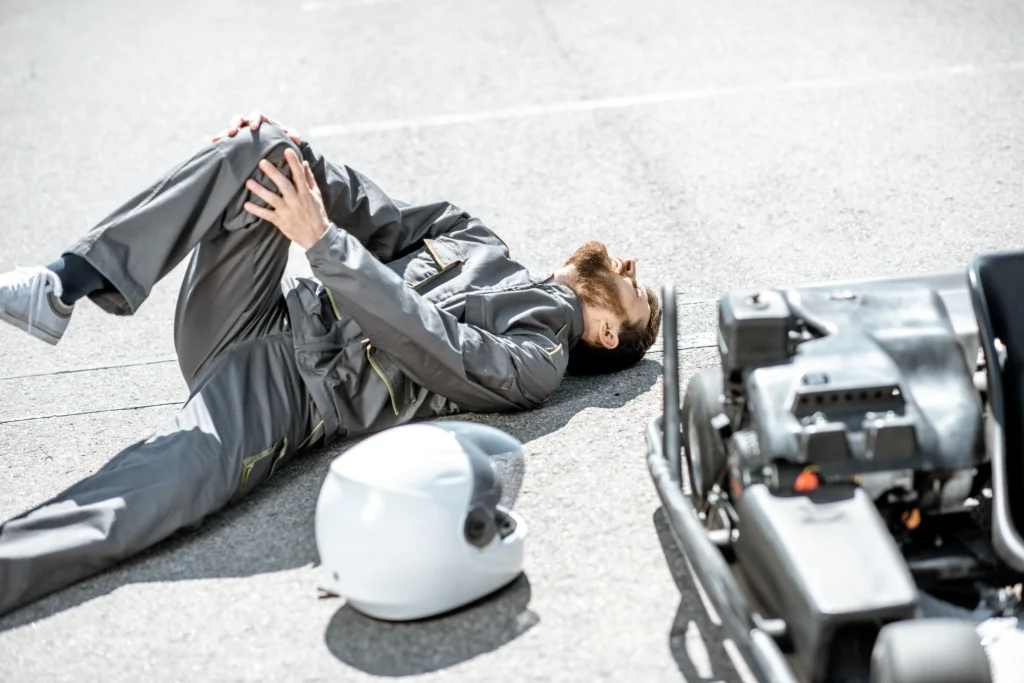


Motorcyclists are at the mercy of other drivers every time they get on the road. Drivers often don’t see bikers or don’t know how to adjust their driving when near a motorcycle. When the superior size and weight of a personal or commercial vehicle collides with a rider on a motorcycle, the larger vehicle always wins. In many cases, the rider can be left with life-altering or even fatal injuries after a motorcycle crash. If you have been injured, or if you have lost a loved one in a Los Angeles or San Francisco, California motorcycle accident, call LyfeLaw today. Our attorneys have extensive experience handling all types of California motorcycle accident claims and can guide you step by step through the process of getting you the compensation you deserve.

Due to their smaller size, motorcycles are more difficult to see. Drivers who are changing lanes may not see a motorcycle that is riding in their blind spot and may change lanes suddenly without signaling.
Although research shows that riding a motorcycle between two lanes of slow or stopped traffic may be safer than waiting, inexperienced riders may veer too close to other vehicles, ride too fast for conditions and make other mistakes that make the situation riskier.
Speeding reduces the amount of time you have to react to other drivers and changing road conditions. This is true in any vehicle, but without the protection of a passenger vehicle, a motorcycle rider is more vulnerable to impact force, which could cause death or serious injuries.
Drivers in cars parked on the side of the road sometimes fail to check or do not see motorcycles approaching before opening their doors. If the motorcycle is riding close to the right side, it may strike a door that suddenly appears in its path.
Many motorists fail to keep a safe driving distance when following a motorcycle. Motorcycles are smaller and lighter, and are able to stop much more quickly than larger vehicles. If the vehicles that follow are too close, they may hit the motorcycle from behind.




Our experienced lawyers will handle the hard stuff, so you can get your life back on track.

We will fight for fair compensation, including getting your car fixed, any necessary medical treatment and paychecks for missed work.
Posted onTrustindex verifies that the original source of the review is Google. This team made my first attorney experience easier than I expected. They were quick with any updates. I hardly had to call them first because they were always on top of my case. Will and his teammates were always very kind and polite. They always made time for my questions and concerns. I would definitely recommend them to my friends and family because I know they will be treated with the same courtesy and care.Posted onTrustindex verifies that the original source of the review is Google. I want to thanks to my lawyer and the staff at Lyfe Law for helping me on my legal matters. I recommend this law firm for their honesty and support for their clients..Posted onTrustindex verifies that the original source of the review is Google. Thank you!Posted onTrustindex verifies that the original source of the review is Google. William Graves and Soheil Bahari helped me win my case. They helped set up doctor appointments when I didn't have the mindset to look for a doctor for my injures. Thanks Lyfe LawPosted onTrustindex verifies that the original source of the review is Google. It was great work of all the team of LIFE Law thanks very much I was Not expecting what was expected God bless everyone good team.Posted onTrustindex verifies that the original source of the review is Google. I would like to say thank you to Lyfe law and team for making me feel like my case was number one. I was able to concentrate on getting better and you was always available to talk with me and eased my concerns about my case. I would definitely recommend Lyfe law to anyone that is looking for help. Anna S.Posted onTrustindex verifies that the original source of the review is Google. They took care of all my needs ,set up everything didn't even have to go to court very sadivide perfeshanal and respectful and courteous. 😃